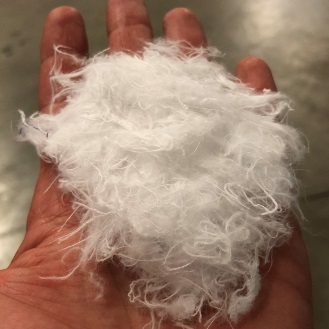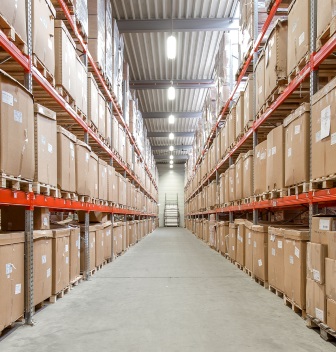WASHING GLOVES ARE FOR WASHING, RIGHT?
Every year, millions (!) of cotton washing gloves and bath towels are used in hospitals and care institutions for the care of patients and clients. The laundries ensure that these care textiles are collected and hygienically cleaned. Enquiries to laundries reveal that the average number of times a washing glove is washed is 2 to 3 times, after which the article disappears. But where are the washing gloves?
Inappropriate use of washing gloves and other care textiles
Practice shows that washing gloves and bath towels, but also for example cotton diapers and tea towels, are not always used for their intended purpose. Nursing staff often judge a washing glove or cotton diaper to be too dirty to be put in the laundry, which means it ends up in the waste container (and thus in the incinerator). Not realising that it is a consumer product and not a disposable product. A laundry can make the most soiled washing gloves and diapers come out of the washing machine as new. Bath towels and tea towels are sometimes used to mop the floor, which causes faster wear, or they are taken home. Obviously, this is not the intention.
20% less textiles
If the above examples of improper use of washing gloves, bath towels and other care textiles would cease to occur, the amount of textiles needed in hospitals and care institutions could be reduced by approximately 20%. In the context of more conscious use of raw materials and thus the environment, we at HeboVanDijk advocate more awareness among end users when it comes to the use of care textiles.
Do not throw away textile!
Laundries have the most advanced cleaning methods, which means that textiles, no matter how dirty, are delivered to hospitals and care institutions as new again. So don’t just throw textiles into the waste container. It is the laundry’s job to assess when a textile item, for example because of wear, is rejected. In this way, the laundry can also take care of the sustainable processing of rejected textiles. Nowadays, more and more rejected textiles are offered to textile recycling companies, who in turn make a new yarn or process them into insulation material for the car industry, for example. In this way, we are all doing our bit to be aware of the cotton waste mountain.



